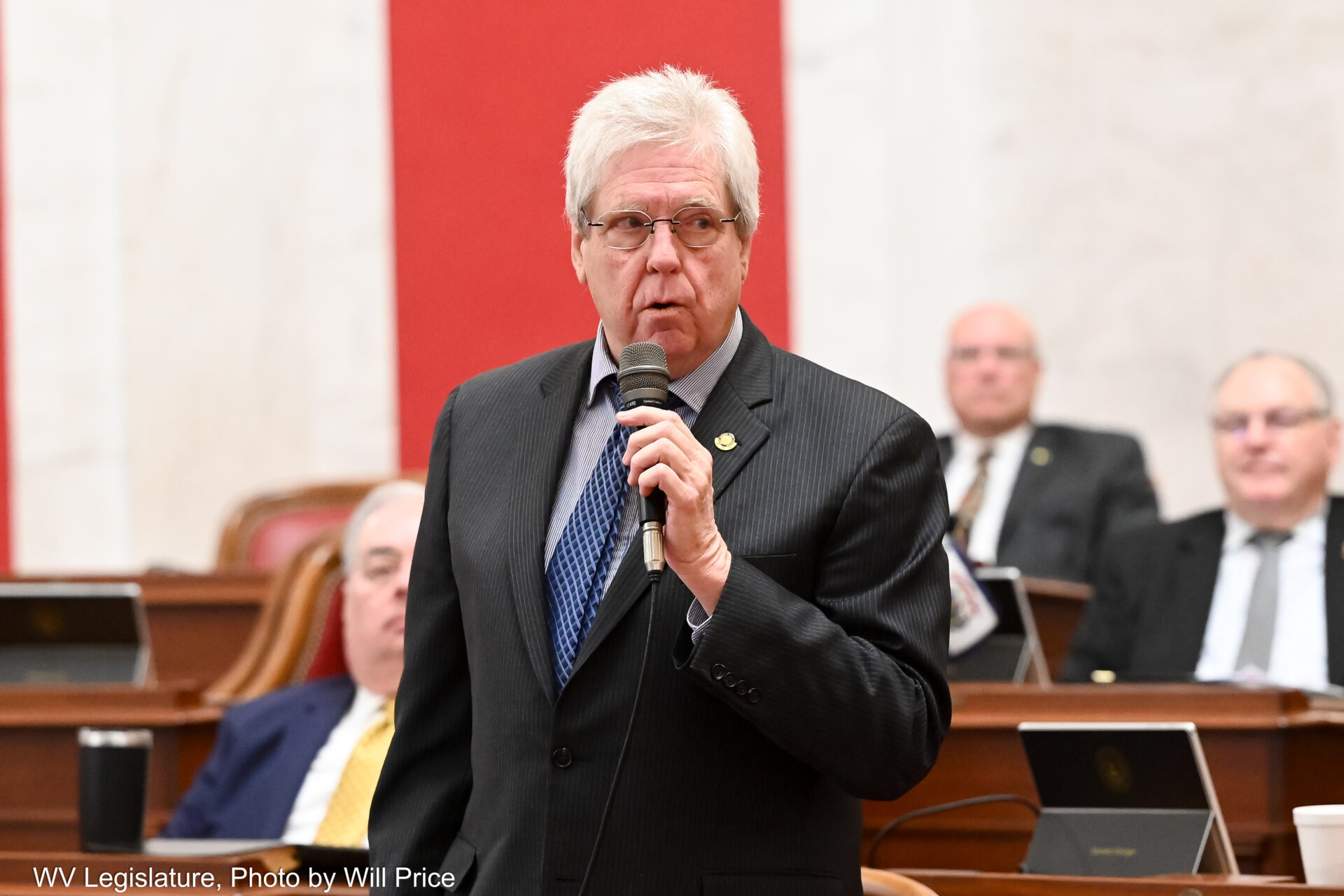The Senate had a lively day to start the week, passing 10 bills on issues ranging from optometry to carbon sequestration. Two of those bills deal with the wellbeing of students in the state’s public schools.
For the past several years, Sen. Mike Woelfel, D-Cabell, has sponsored Senate Bill 155, establishing the “Summer Feeding For All” program. He said certain counties like Cabell have been able to successfully feed students when school isn’t in session, but childhood hunger remains a problem across the state.
“And unfortunately, around the state, there are still pockets of poverty where children are hungry in the summer,” Woelfel said. “This will identify those pockets and make sure that we can get food to those children.”
According to the Food Research and Action Center, a nonprofit organization that works to end hunger and improve health outcomes for people in poverty, only 15% of children who received a free or reduced-price lunch nationally during the 2022–2023 school year received a summer lunch. The West Virginia Department of Education estimates that close to 70% of the state’s school-aged children qualify for free or reduced-priced meals.
Woelfel said his bill doesn’t require counties to establish summer feeding programs or even engage with existing programs like the federal Summer Food Service Program.
“It doesn’t impose any unfunded cost on the county boards of education,” he said. “This is just to find a way to identify the kids that are hungry and let social services, the churches – the communities can feed them, but if we don’t know who they are, they’re going to be hungry in the summer.”
The bill has found success in the Senate, passing in both 2023 and 2024, but never in the House of Delegates. Despite its many failed attempts, Woelfel said he is happy to see it run again this year and hopes the House will advance it as well. But he did not leave things to chance, and on the Senate floor Monday Woelfel urged his Republican colleagues to apply some pressure in the lower chamber.
“This bill did not get taken up in the House last year, if you’d imagine that, so kids just continued to suffer from hunger over the summer,” he said. “So if those in the majority party feel so inclined, please reach out across the hallway and try to encourage folks in the house to stand up for these hungry kids. Thank you.”
A similar bill, House Bill 3254, was introduced in the House on Friday and was sent to the House Education Committee.
Another School Discipline Bill
For the past several years, legislators have heard from concerned citizens and educators about the rise in violent behavior in younger and younger students. Last week the House of Delegates passed House Bill 2515, which would give teachers from Kindergarten to grade six the ability to remove students from their classroom for extreme disciplinary issues.
Monday the Senate passed Senate Bill 199, their own version of elementary school discipline. Senate Education Chair Sen. Amy Grady, a Republican from Mason County, presented a similar bill last year and said in committee that she put significant effort this year to ensure the bill provided the best outcomes for students. That includes requiring that students work with mental health professionals.
“The school counselor, social worker, psychologist or behavior intervention is required to establish a behavior plan for the student,” Grady said while explaining the bill on the Senate floor Monday. “The behavior plan is required to be followed for a period [of] two weeks. After that, a re-evaluation of the student’s behavior is to be made. If adequate progress is being made, the behavior plan is continued.”
Requirements in both the House and Senate versions of the bill that students be placed in alternative education settings have raised concerns from lawmakers and school administrators about costs. Only 13 such programs exist in the state at this time, and many more would need to be established to comply if the law were to pass.
The two discipline bills will now need to clear the legislative process again in the opposing chambers and be reconciled before being able to find their way to the governor’s desk for signature.
